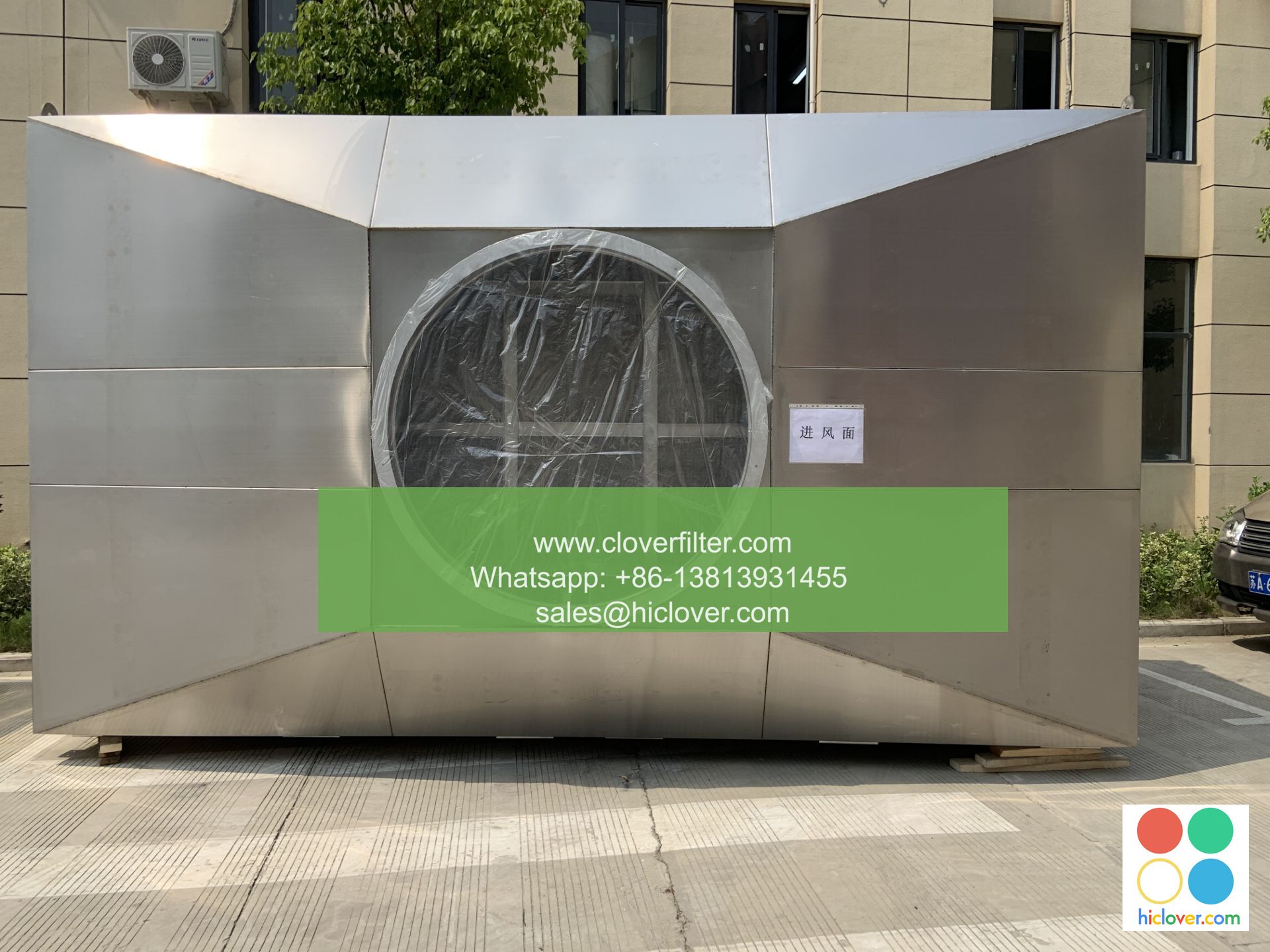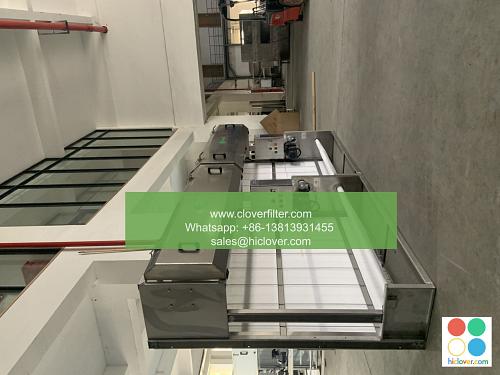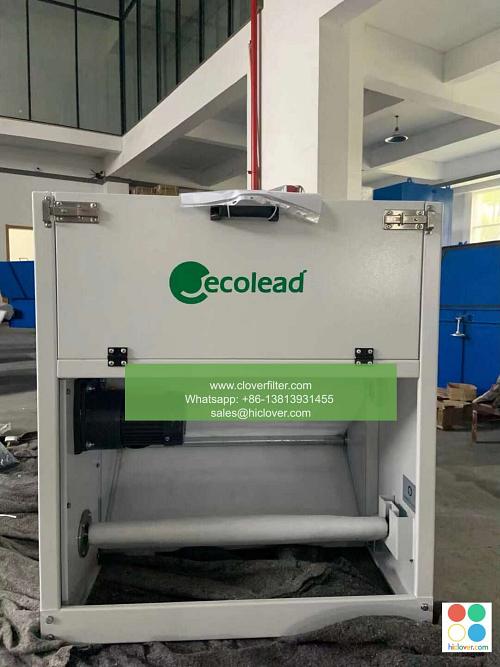Improving Air Quality in Oil and Gas Plants with Automatic Roll Air Filters

The oil and gas industry is a significant contributor to air pollution, with emissions from extraction, processing, and transportation activities affecting both local communities and the global environment. To mitigate these impacts, oil and gas plants are adopting various strategies to improve air quality, one of which is the use of automatic roll air filters. These advanced filtration systems offer a more efficient and effective way to remove particulate matter, gases, and other pollutants from the air, contributing to a cleaner and healthier environment.
Traditional air filtration systems in oil and gas plants often rely on manual changes of filters, which can be time-consuming, labor-intensive, and may lead to periods of reduced filtration efficiency. In contrast, automatic roll air filters provide a continuous supply of fresh filter media, automatically advancing to new, clean sections as the old ones become saturated with pollutants. This not only ensures consistent air quality but also minimizes maintenance downtime, reducing operational costs and enhancing overall plant efficiency.
The benefits of automatic roll air filters in oil and gas plants extend beyond operational efficiency. By more effectively removing pollutants from the air, these systems help in reducing the environmental footprint of these facilities. For instance, they can significantly lower emissions of particulate matter (PM), nitrogen oxides (NOx), sulfur dioxide (SO2), and volatile organic compounds (VOCs), all of which are harmful to human health and the environment. Furthermore, by minimizing the release of these pollutants, oil and gas companies can better comply with increasingly stringent environmental regulations, avoiding potential fines and reputational damage.
Another advantage of automatic roll air filters is their ability to handle a wide range of pollutants and operating conditions. Unlike static filters that may become clogged or less efficient over time, especially in harsh environments with high dust loads or corrosive substances, automatic roll filters can adapt to changing conditions. They continue to provide high-efficiency filtration, even in the presence of moisture, chemicals, or high temperatures, making them particularly suitable for the varied and often challenging conditions found in oil and gas operations.
In addition to their technical advantages, the adoption of automatic roll air filters aligns with the oil and gas industry’s growing commitment to sustainability and social responsibility. As public awareness and concern about climate change and air quality continue to grow, companies in this sector are under increasing pressure to demonstrate their commitment to reducing environmental impacts. By investing in advanced air filtration technologies, oil and gas companies can showcase their proactive approach to minimizing pollution, enhancing their reputation and potentially gaining a competitive edge in the market.
When selecting automatic roll air filters for oil and gas applications, it’s crucial to consider factors such as the type and concentration of pollutants, airflow rates, temperature, and humidity levels. Proper sizing and configuration of the filter system are also essential to ensure optimal performance and to prevent undue pressure drops that could affect plant operations. Additionally, maintaining the filters according to the manufacturer’s instructions and monitoring their performance regularly can help in maximizing their effectiveness and lifespan.
Conclusion
In conclusion, automatic roll air filters represent a significant step forward in improving air quality in oil and gas plants. By offering enhanced efficiency, reduced maintenance, and the ability to handle a wide range of pollutants and operating conditions, these systems contribute to both environmental sustainability and operational excellence. As the oil and gas industry continues to evolve towards cleaner and more responsible practices, technologies like automatic roll air filters will play an increasingly important role in minimizing the sector’s environmental footprint and ensuring a healthier future for communities and ecosystems alike.
FAQs
Q: How do automatic roll air filters improve air quality in oil and gas plants?
A: Automatic roll air filters improve air quality by continuously removing pollutants such as particulate matter, gases, and VOCs from the air, ensuring consistent filtration efficiency without the need for manual intervention.
Q: What are the operational benefits of using automatic roll air filters?
A: The operational benefits include reduced maintenance downtime, lower operational costs, and enhanced plant efficiency due to continuous and consistent air filtration.
Q: Can automatic roll air filters handle harsh operating conditions?
A: Yes, automatic roll air filters are designed to handle a wide range of operating conditions, including high dust loads, moisture, chemicals, and high temperatures, making them suitable for challenging environments found in oil and gas operations.
Q: How do automatic roll air filters contribute to sustainability in the oil and gas industry?
A: By effectively reducing emissions and minimizing environmental impacts, automatic roll air filters help oil and gas companies demonstrate their commitment to sustainability and social responsibility, potentially improving their reputation and market competitiveness.


